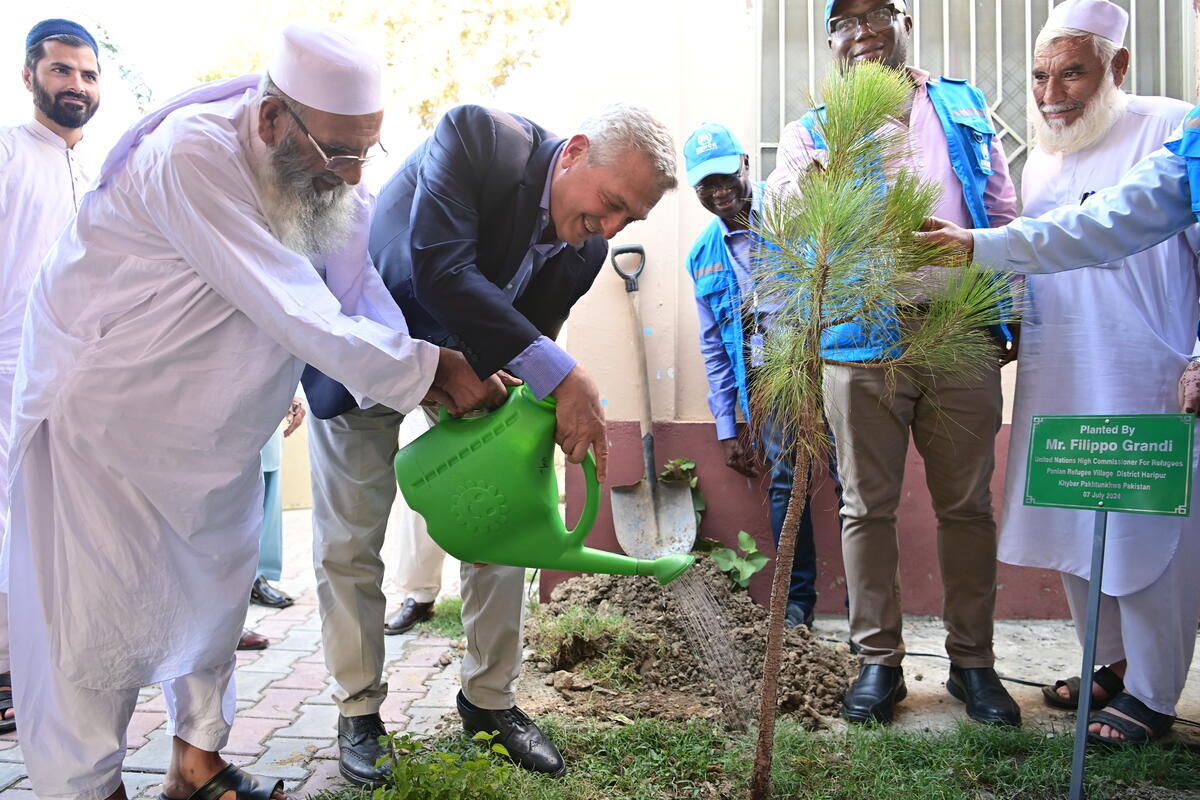Quetta offers one-stop centre for Afghan information
Quetta offers one-stop centre for Afghan information

QUETTA, Pakistan, July 1 (UNHCR) - For Abdul Rahim, stopping at UNHCR's recently-opened information centre before work each morning has become a daily routine.
"It's just a natural stop whenever I see the signboard," says the 44-year-old Afghan refugee who left his home in Kunduz 16 years ago. "I check if they have recent news, magazines or bulletins that UNHCR gets from Kabul, or any other informative sessions that might take place."
The centre was opened this year by the UN refugee agency to provide information to Afghans in Quetta, Pakistan about conditions in their homeland. It is the first of its kind in the country, and is modelled after similar UNHCR centres in Iran.
Apart from storing reading material translated into Pashto and Dari - the two main Afghan languages - the Quetta centre also provides information on repatriation and development news, and holds information sessions on different issues.
"We have around 50 Afghan refugee visitors coming daily to seek information about different issues in Afghanistan," says Allah Yar, who works at the centre. "Most of them are interested in the current repatriation programme - how long it will run and the assistance package that UNHCR is offering."
He adds, "They also enquire about current developments at home, like road works, job opportunities, health facilities and education opportunities." He reads the information to those who are illiterate.
"The main reason for opening the centre in Quetta was to help the voluntary repatriation that has been ongoing from Pakistan to Afghanistan from the last two years," says Indrika Ratwatte, UNHCR's repatriation coordinator in Pakistan.
In addition to printed information on a bi-weekly basis sent from Afghanistan, UNHCR also supports a BBC broadcast for Afghan refugees.
"The voluntary repatriation of Afghans from Pakistan runs till March 2006 under an agreement between Pakistan, Afghanistan and UNHCR, with refugees deciding whether they want to return," adds Ratwatte. "Our aim is to make sure Afghans have the information they need, but to leave the final decision on returning to the individual."
Abdul Rahim, a teacher at a self-help Afghan refugee school in Quetta, is a typical visitor to the information centre. While going through the documents, he raises questions on his province in northern Afghanistan.
"I have my children enrolled in one of the Afghan schools in Quetta and want to know more about education opportunities in my hometown in Kunduz," he says.
The centre also arranges sessions where refugees can listen to Afghan officials, teachers, religious leaders and other visitors to Afghanistan as they share their eye-witness accounts.

Haji Nabi Safi, director of the Afghan Ministry of Rehabilitation and Repatriation (MoRR) office in Quetta, recently returned from a visit to Kabul, Kandahar and Zabul. After he describes the latest happenings in their homeland, refugees from different regions of Afghanistan question him on a wide range of issues.
"I am happy to answer all these questions - I believe that such an exchange of views helps inform the Afghans in Pakistan about the real conditions inside Afghanistan," says Safi.
The UN refugee agency has helped more than 2 million Afghans to return from Pakistan since the voluntary repatriation programme began in March 2002. After 1.5 million refugees went home in 2002, another 343,000 returned in 2003. So far in 2004, UNHCR has helped more than 180,000 Afghans - including some 100,000 from urban centres - to leave Pakistan.








